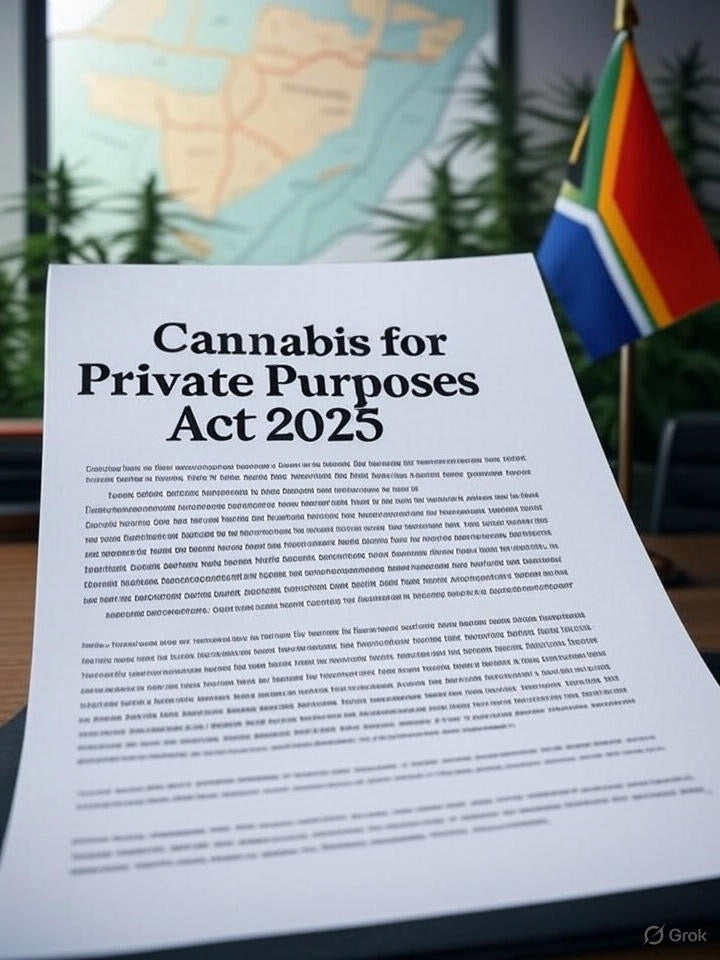
Understanding the Legal Framework for Cannabis Use in South Africa in 2025
Published on May 30, 2025, at 11:45 AM SAST
At Garden Route Green, based in Mossel Bay, South Africa, we’re committed to keeping our community informed about the evolving landscape of cannabis use—especially as it impacts our customers and their pets. With the recent legalization of cannabis for private use, many South Africans are curious about what’s allowed and what’s not. This blog post breaks down the current legal framework for cannabis use in South Africa as of May 2025, focusing on personal use, cultivation, and what it means for businesses like ours selling CBD products, such as our “CBD Biltong 100g – 50mg Strength” and “Pet CBD Oil 200mg – Bacon Flavor.”
A Brief History of Cannabis Legislation in South Africa
Cannabis, locally known as “dagga,” has a long history in South Africa, dating back centuries. However, its use was criminalized in 1922 under the Customs and Excises Duty Act, with harsher enforcement through the 1992 Drugs and Drug Trafficking Act, often disproportionately targeting marginalized communities. The tide began to turn in 2017 when the Western Cape High Court ruled that prohibiting private cannabis use violated the right to privacy—a decision upheld by the Constitutional Court in 2018 in the landmark Minister of Justice v Prince case. This ruling decriminalized the private use, possession, and cultivation of cannabis by adults for personal consumption, setting the stage for further legislative changes.
On May 28, 2024, just before the national elections, President Cyril Ramaphosa signed the Cannabis for Private Purposes Act (CPPA) into law, making South Africa the first African nation to legalize recreational cannabis use. This Act, now fully in effect as of 2025, provides a clearer framework for private use while maintaining strict regulations on public use and commercial activities.
What Does the Cannabis for Private Purposes Act Allow?
The CPPA establishes specific guidelines for adults (18 and older) regarding cannabis use, possession, and cultivation in South Africa. Here’s what you need to know:
-
Private Use and Possession:
Adults can legally use and possess cannabis in private spaces. The Act defines “private” broadly, meaning it’s not limited to your home—it can include any non-public space, like a private vehicle or a friend’s house, as long as you’re not in the presence of non-consenting adults or children. - Possession limits: You can have up to 600 grams of dried cannabis (or equivalent) in a private space per adult, and 100 grams in a public space (e.g., while traveling to a private location).
- You can also possess one flowering cannabis plant (or equivalent) in a public space for transport to a private setting.
-
Cultivation for Personal Use:
Adults are permitted to grow cannabis plants for personal use in private spaces. The Act sets limits on the number of plants (though exact numbers can vary based on future regulations) and requires secure cultivation to prevent access by children or unauthorized individuals. This provision aims to reduce reliance on the black market by allowing users to control the quality and safety of their cannabis. -
Sharing, Not Selling:
Adults can share cannabis with other adults for personal use without payment. For example, you can give a friend some of your home-grown cannabis, but selling it remains illegal under the CPPA.
What’s Still Illegal?
Despite the legalization of private use, the CPPA imposes strict restrictions to balance public health and safety:
-
Public Consumption:
Smoking or consuming cannabis in public spaces, including parks, streets, or vehicles on public roads, is prohibited. Violators can face fines or imprisonment. The Act also bans consumption in the presence of non-consenting adults or children. -
Commercial Sales:
Selling cannabis for recreational use remains illegal. While the CPPA hints at future provisions for commercial activities, as of May 2025, no regulated market for recreational cannabis exists. This has led to confusion, with some “private members’ clubs” and dispensaries operating in a legal gray area—many have been raided by authorities, such as The Haze Club in Johannesburg in 2020, with legal proceedings ongoing. -
Driving Under the Influence:
Cannabis is considered an intoxicating substance, and driving under its influence is strictly prohibited. This aligns with South Africa’s road safety laws, as cannabis can impair judgment and reaction times. -
Involvement of Minors:
The Act criminalizes exposing children to cannabis, including use, possession, or cultivation in their presence. Selling or providing cannabis to minors is also illegal, with severe penalties.
Medical Cannabis and CBD Products
Medical cannabis has been legal in South Africa since 2017, regulated by the South African Health Products Regulatory Authority (SAHPRA) under the Medicines and Related Substances Act of 1965. Patients with qualifying conditions can access medical cannabis through licensed providers, and cultivation for medical purposes requires a permit from the Department of Health.
For CBD products like those sold by Garden Route Green:
- CBD with Low THC: Products containing less than 0.001% THC are legal for sale and use, as they’re non-psychoactive. Our “Pet CBD Oil 200mg – Bacon Flavor” and “CBD Biltong 100g – 50mg Strength” comply with this threshold, making them safe and legal for purchase.
- Nappi-Coded Products: Many of our CBD products are Nappi-coded, meaning they’re eligible for medical aid claims—a significant benefit for South African customers.
- Retail Restrictions: While we can legally sell CBD products with low THC, the CPPA doesn’t yet allow us to sell recreational cannabis with higher THC levels. Any shop claiming to sell recreational cannabis legally in 2025 is likely operating outside the law unless licensed for medical purposes.
Economic and Social Implications
The CPPA has opened doors for personal freedom, but its restrictions on commercial activities have sparked debate. President Ramaphosa has highlighted cannabis as a potential economic driver, with the African cannabis market projected to reach $7 billion by 2023, and South Africa’s share at $1.7 billion. However, the lack of a regulated commercial market limits job creation and economic growth, leaving many legacy farmers in areas like the Eastern Cape’s “dagga belt” unable to legally participate.
Socially, the Act has reduced arrests for personal use, freeing up law enforcement resources. It also provides for the expungement of criminal records for past cannabis possession convictions, addressing historical injustices. However, the illicit market continues to thrive due to the absence of legal commercial options, and public health concerns—like youth access and unregulated products—remain unaddressed without a cohesive framework.
What’s Next for Cannabis in South Africa?
While the CPPA is a significant step forward, it’s not the final chapter. The Act’s interim framework leaves room for future regulations, particularly around:
- Commercialization: The Portfolio Committee on Justice and Correctional Services has indicated plans to extend the CPPA to include commercial activities, potentially creating a regulated market for recreational cannabis. However, as of May 2025, these provisions are still under development.
- Public Health and Education: There’s a pressing need for public education campaigns to clarify legal boundaries and promote safe use, especially given the misconceptions about buying cannabis from unlicensed shops.
- Learning from Others: South Africa’s cautious approach contrasts with Thailand’s rapid legalization in 2022, which led to a chaotic market and a subsequent backlash. By prioritizing regulation over rushed commercialization, South Africa aims to avoid similar pitfalls.
How This Affects Garden Route Green Customers
For our customers in Mossel Bay, George, Knysna, and beyond, the CPPA means you can legally use and grow cannabis in private spaces, but you must be cautious about public consumption and sourcing. Our CBD products, like the “Pet CBD Oil 200mg – Bacon Flavor,” remain a legal and safe option for supporting your pet’s wellness—whether it’s reducing anxiety or improving mobility. We’re also committed to transparency: all our products comply with South African regulations, and we provide certificates of analysis to confirm THC levels are below 0.001%.
If you’re interested in growing your own cannabis, the CPPA allows it, but ensure you stay within possession and cultivation limits, and keep it private. For now, avoid buying recreational cannabis from unlicensed shops, as this remains illegal and risky.
Conclusion: Navigating the New Cannabis Landscape
The Cannabis for Private Purposes Act marks a historic shift in South Africa’s approach to cannabis, prioritizing personal freedom while maintaining strict public safety measures. At Garden Route Green, we’re excited to see how this evolves, especially as it opens opportunities for our CBD business to grow responsibly. Whether you’re using CBD for yourself or your pet, or exploring private cultivation, staying informed about the legal framework ensures you can enjoy cannabis safely and legally.
Have questions about our CBD products or the new laws? Visit our Pet CBD or CBD Edibles collections, or stop by our Mossel Bay store for a chat. Let’s navigate this new era of cannabis together!
